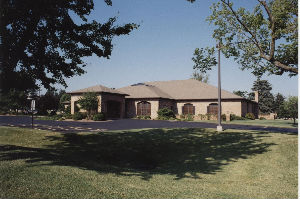Funeral Planning Guide
Planning for end-of-life arrangements is a compassionate act that grants you and your loved one’s peace of mind. Our team of professionals has over 80 years of combined experience in the funeral planning industry. We share a common goal: to guide you through every step with empathy and expertise. Millions of people visit our website each year, and thousands have trusted the After Me Planner for their funeral-planning needs. Whether you are pre-planning or arranging a funeral now, our free tools make the process simple and personalized. We have created a comprehensive library of up-to-date information to help you make responsible first steps toward designing a dignified farewell.
Our funeral planning pages provide clear, compassionate answers to common questions about arranging a funeral, planning a funeral in advance, and navigating the planning process. The list of links below highlight important pages of our website that have more details on specific areas that will be of interest to you. If you have a question that is not addressed on this page or in one of the links, please email us at support@funeralwise.com.
Funeral Planning: Your Complete Guide
Funeral Planning Advice and Tips
About Funeral Providers
Planning Resources
We understand that funeral planning means different things to different people. That’s why we cover a full range of topics. If you want a do-it-yourself funeral planner, check out our After Me Planner. We recommend you visit our Funeral Arrangements page if you have an immediate need.

Funeral Planning How-to's and Advice
A step-by-step guide to funeral planning and information on funeral costs and more
Check Out Our Funeral Planning Guide
Plan Your Funeral Before You Need It
Any time is a good time for funeral planning... except at the time of the funeral.
Learn About Funeral Preplanning
Funeral Homes and Funeral Directors
Learn what to expect when working with a funeral home (aka, mortuary) and funeral director.
Learn About Funeral HomesFrequently Asked Questions
The best time to plan a funeral is before you need it. Planning allows you to create a meaningful tribute that truly reflects the life, values, and wishes of the deceased while helping to provide closure and comfort to those grieving. Funeral planning reduces the stress for the family of the deceased and ensures that your wishes are met. It can also help you manage costs. The key steps to planning a funeral are to: For more information on planning a funeral, visit our Funeral Arrangements page. Yes! When you preplan, you give a very generous gift to your loved ones: the freedom to begin their path through grief without the added emotional and financial stress of trying to decide what you would have wanted. One significant benefit of preplanning your funeral is that it can help ensure that your wishes are honored. You may also be able to lock in prices at their current level. Be sure to share your plans with a loved one so they know what you have in mind. The time it takes to plan a funeral varies depending on the type of funeral you have in mind. You will need to make numerous decisions, and the complexity of the service will determine the number of details you must arrange. When collaborating with others, it can take some time to reach a consensus on the details. Generally, a traditional funeral with a viewing typically takes one to two weeks to complete. If you plan well in advance, the availability of the funeral home you select will likely not be a factor. If the person has already passed, their schedule will affect the timing. You will also have to consider the travel arrangements for the family coming from out of town. Another factor that can influence the timing is religious and cultural requirements. Some cultures require burial within 24 hours of death. Others include a multi-day ritual. For more details on making funeral arrangements, visit our Arrangements page. A funeral is a service where the body is present. It will typically happen shortly after death. Learn more about the elements of a funeral or memorial service. A celebration of life is a more personal or informal event focused on honoring the person’s legacy. These days, many people choose to have a portion of the funeral include a celebration of life. In such cases, the formal structure of a funeral often incorporates more personalized elements. Funeral costs vary widely depending on the choices made. Overall, the average price ranges from $7,000 to $12,000 for a traditional funeral with burial. According to the National Funeral Directors Association (NFDA), the average cost of a traditional funeral with burial in 2023 was $8,300. Among the factors that affect the price are location, service type, and the funeral merchandise you select. Cremation is often less expensive since it doesn’t require a casket, cemetery plot, or headstone. Cremation typically costs between $2,000 and $7,000. For more details on the costs of a funeral, visit our page on funeral costs. Once you have created a list of possible funeral homes, review their online presence and verify their credentials. Take tours and compare the services they offer—request price lists. You want to find a company or funeral director with whom you are comfortable, so consider factors such as location, communication, and services. For more information on funeral homes, funeral directors, and how to choose them, visit the Funeral Homes and Funeral Directors page. In most states, a funeral director is required for certain services (like embalming or transport), but direct cremation and home funerals are legal in many areas. To confirm the regulations for your state, check with the funeral service commission in your state. In the best of worlds, there is money set aside for this specific purpose. Even if funds are available, they may not be sufficient, especially if the death is unexpected. However, there are ways to ensure that you have enough resources to cover funeral and burial costs. Several financial tools are available to help cover the cost of a funeral. These work best when you plan ahead. These include funeral/burial insurance, final expense insurance, pre-need funeral contracts, and funeral trusts. Each of the financial tools listed above can be complex and justify further research. We suggest clicking on the links for each to learn more about them. Situations do arise where there isn’t any money available to pay for a funeral. What can you do? Whether to have a burial or be cremated is a fundamental decision. The best way to decide which is right for you is to consider your family and cultural customs, the costs, and the options available for each. Our cremation page provides detailed information on all the factors that contribute to making the decision.
A memorial service occurs without the body present. A memorial service can be held at any time.









